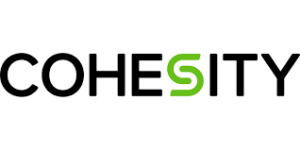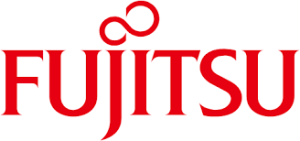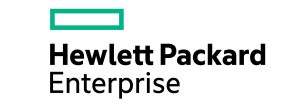Enterprise Data Storage market shows significant growth in the future with the global data storage market anticipated to surge from $247.32 billion in 2023 to $777.98 billion by 2030. This expansion is propelled by escalating demands across diverse sectors such as IT and Telecom, Banking and Financial Services, Healthcare, Manufacturing, and others. Segmentation of the market based on types reveals distinct categories including Storage Area Network (SAN), Network Attached Storage (NAS), and Direct Attached Storage (DAS), among others.
Traditional solutions often struggle to manage high workloads efficiently, leading to a shift towards colocation facilities for scalability. These facilities not only augment storage capacity but also offer robust disaster backup recovery solutions, essential for business continuity.
For enterprises aiming for sustained growth, meticulous attention to IT infrastructure and data storage strategies is vital. Understanding customer demands is crucial in crafting effective data storage strategies that align with business objectives.
Choosing the Right Data Storage Solution for Your Business
In the modern business landscape, selecting an appropriate data storage solution is important as data volumes continue to escalate. Whether it pertains to storing customer information, product data, financial records, or other critical data sets, businesses have a plethora of options at their disposal. Here are key considerations, when selecting a data storage solution tailored to your business:
- Determine Your Data Storage Needs: The foundational step in this process is to assess your organization’s data storage requirements. Factors such as business size, data volume, and the nature of data generated dictate the appropriate storage solution. For instance, smaller enterprises with modest data volumes may suffice with basic external hard drives, while larger corporations with extensive data repositories might necessitate more intricate storage systems.
- Evaluate Your Budget: Financial considerations play a pivotal role in the selection process. Establishing a clear budget beforehand is imperative, given the wide range of pricing options available in the data storage market. While some solutions may entail higher initial costs, their long-term cost-effectiveness, owing to factors such as durability and scalability, warrants consideration.
- Consider Security: Data security is non-negotiable for businesses, underscoring the importance of selecting a secure data storage solution. Prioritize options equipped with robust encryption, firewalls, and other security measures to thwart unauthorized access to sensitive data.
- Think About Scalability: As businesses evolve, so do their data storage requirements. Hence, it’s prudent to opt for a scalable storage solution capable of accommodating future growth seamlessly. Cloud-based storage solutions, renowned for their scalability, offer flexibility to adapt to evolving storage needs over time.
- Determine Accessibility Requirements: Assess the accessibility needs of your organization and its workforce. Will data need to be accessed from multiple locations or remotely? Ensure that the chosen storage solution aligns with your accessibility prerequisites.
- Look at Backup and Recovery Options: Prioritize backup and recovery capabilities when selecting a data storage solution. Seek options that offer regular backups, data redundancy, and other features to safeguard data integrity in the event of hardware failures or unforeseen incidents.
Leading Enterprise Data Storage Providers
#1 NetApp
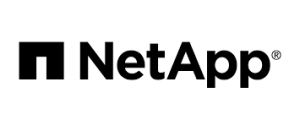
NetApp is a leading provider of storage, cloud computing, information technology, and data management solutions, offering a comprehensive suite of services tailored to meet diverse enterprise needs. While excelling in on-premises storage infrastructure, NetApp specializes in hybrid cloud data services, facilitating seamless management of applications and data across cloud and on-premises environments to expedite digital transformation initiatives.
Storage Solutions
NetApp’s flagship solution, NetApp ONTAP, serves as the cornerstone platform, delivering a host of essential functionalities:
- Unified Storage: Offers support for file, block, and object storage within a unified system, streamlining management processes and enhancing operational flexibility.
- Data Management: Incorporates features such as cloning, snapshots, and replication to ensure robust data protection and availability, essential for safeguarding critical business assets.
- Cloud Integration: Seamlessly integrates with leading public clouds, including AWS, Azure, and Google Cloud, enabling seamless hybrid and multi-cloud deployments for enhanced scalability and agility.
- AI-Powered Optimization: Harnesses the power of artificial intelligence to optimize performance and storage efficiency automatically, ensuring optimal resource utilization and performance.
Benefits
- Reduced Complexity: Unified management simplifies operations, reducing administrative overhead and saving valuable time for IT teams.
- Enhanced Performance: Delivers high throughput and low latency, catering to the demands of even the most intensive workloads with ease.
- Scalability: Adapts seamlessly to evolving data volumes and changing business requirements, ensuring uninterrupted growth and expansion.
- Security: Boasts robust data protection features, safeguarding sensitive information against potential threats and vulnerabilities.
- Flexibility: Supports a variety of deployment models, including on-premises, cloud, and hybrid environments, providing organizations with the flexibility to choose the solution that best aligns with their specific needs and preferences.
#2 Amazon Web Services
Amazon Web Services (AWS) provides a comprehensive suite of solutions encompassing cloud computing, computing, networking, content delivery, databases, analytics, application services, backup, and archive capabilities. AWS extends various cloud storage solutions, including Amazon Elastic Block Store (Amazon EBS), Amazon Simple Storage Service (Amazon S3), and AWS Backup, among others, enabling users to select from object, block, and file storage services, as well as cloud data migration options to suit their unique requirements. Moreover, AWS platforms cater to both application and archival compliance needs.
Amazon Simple Storage Service (S3)
Highly scalable object storage, multiple storage classes for cost optimization, data lifecycle management, and robust security features.
Amazon Elastic Block Store (EBS)
Block-level storage for persistent data attached to EC2 instances, offers various performance options (SSD, HDD), snapshotting for backups, and data encryption.
Amazon FSx
Fully managed file systems encompassing options like Windows File Server, Lustre for HPC, and scalable performance tailored to specific needs.
Amazon Glacier
Secure, long-term archival storage for infrequently accessed data, boasts low storage costs and provides data retrieval options with variable retrieval times.
Amazon S3 Glacier Deep Archive
Ultra-low-cost object storage catering to rarely accessed data offers retrieval times ranging from 12 to 96 hours.
#3 Pure Storage
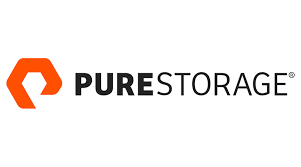
Pure Storage, a premier provider of all-flash enterprise storage solutions. It empowers organizations to seamlessly integrate Flash technology into their data centers. With a focus on enabling Software as a Service (SaaS) entities, cloud service providers, and both enterprise and public sector users, Pure Storage facilitates the secure delivery of data to fuel DevOps and modern analytics environments across multi-cloud infrastructures.
Key Technologies and Offerings
DirectFlash™ Technology: Leveraging flash memory directly, this technology eliminates the performance bottlenecks associated with traditional HDDs, ensuring unparalleled speed and efficiency.
AI-Powered Data Reduction: Pure Storage employs Evergreen™ technology to optimize storage efficiency through AI-driven data reduction, resulting in reduced costs and complexity for users.
Built-in Data Protection: Advanced features such as snapshots, replication, and ransomware protection guarantee data availability and security, bolstering organizational resilience against potential threats.
Cloud Integration: Pure Storage seamlessly integrates with leading public clouds, facilitating hybrid and multi-cloud deployments while ensuring seamless data mobility and accessibility.
API-Driven Management: Streamlined automation and orchestration capabilities simplify management tasks, enabling organizations to achieve operational efficiency and agility.
Benefits
- Unmatched Performance: Delivering significantly faster IOPS and lower latency compared to traditional storage solutions.
- Simplified Management: Intuitive interfaces and automation tools reduce administrative burdens, enhancing operational efficiency.
- Improved Efficiency: AI-powered data reduction optimizes storage space and lowers costs, maximizing resource utilization.
- Enhanced Data Protection: Robust built-in security features safeguard sensitive information, ensuring data integrity and compliance.
- Future-Proof Scalability: Pure Storage solutions easily scale to meet evolving data demands, providing organizations with the flexibility to adapt to changing requirements.
#4 Cohesity
Cohesity offers an innovative solution by consolidating secondary storage silos onto a hyperconverged, web-scale data platform compatible with both public and private clouds. This storage solution empowers users to streamline backup and data protection processes and converge file and object services, test/dev instances, and analytic functions into a unified global data store. Cohesity presents two hyper-converged platforms, C3000 and C4000, along with its distributed file system solution, Cohesity SpanFS. These offerings aim to address the evolving needs of enterprises seeking comprehensive data management solutions.
Unique Features
Cohesity’s hyperconverged data management platform boasts several distinctive features:
- Hyperconverged Architecture: Integration of storage, computing, and networking resources within a single cluster eliminates silos, streamlining management processes and reducing complexity.
- Global Data Deduplication: Advanced deduplication techniques reduce storage footprint by up to 95%, resulting in significant cost savings and simplified data handling.
- Multi-Cloud Integration: Seamless support for backup, archiving, and disaster recovery across leading public clouds such as AWS, Azure, and Google Cloud enhances data mobility and flexibility.
- AI-Powered Data Protection: Harnessing the power of machine learning, Cohesity’s platform offers automated recovery and proactive ransomware detection and prevention, bolstering data security and resilience.
- Scalability and Flexibility: Designed to scale effortlessly, Cohesity solutions accommodate the growing data volumes and diverse workloads characteristic of modern enterprises.
Strategic Advancements
Cohesity secured $250 million in Series E funding, underscoring its commitment to innovation and growth. Furthermore, its recognition as a ‘Leader’ in the GigaOm Report on Unstructured Data Management Solutions reaffirms its position as a frontrunner in the industry.
#5 Nutanix
Nutanix is a leading provider of cloud software, computing and storage infrastructure, as well as hyperconverged infrastructure solutions designed to revolutionize enterprise virtualization. By offering a comprehensive suite of solutions, Nutanix enables organizations to implement virtualization without the complexities and expenses associated with traditional network storage, whether SAN or NAS.
Nutanix AOS
Nutanix AOS integrates computing, storage, and networking into a single cluster, simplifying management and delivering efficient, scalable data solutions.
Features
Nutanix’s solutions boast several key features:
- Hyperconvergence: Converging compute, storage, and networking resources eliminates hardware silos, streamlining infrastructure and enhancing efficiency.
- Web-scale Architecture: Built on distributed nodes, Nutanix offers linear scalability and high availability, ensuring optimal performance and reliability.
- Data Fabric: A unified management platform for all Nutanix solutions, providing seamless management of storage and compute resources.
- AOS Storage: Delivering block, file, and object storage services within the Nutanix cluster, providing flexibility to accommodate diverse workloads.
- Built-in Data Protection: Nutanix solutions incorporate essential data protection features such as snapshots, replication, and disaster recovery, ensuring data availability and security.
Benefits
- Simplified Management: Consolidating storage, computing, and networking into a single platform saves time and resources, simplifying operations and enhancing efficiency.
- Scalability and Flexibility: Nutanix solutions scale seamlessly to accommodate data growth and diverse workloads, providing organizations with the flexibility to adapt to changing requirements.
- Reduced Costs: By eliminating hardware silos and optimizing resource utilization, Nutanix solutions potentially lower costs and enhance cost-effectiveness.
- High Availability: Nutanix’s distributed architecture ensures data uptime and minimizes downtime risk, providing organizations with reliable and resilient data solutions.
- Cloud Integration: Seamless integration with public cloud platforms enables hybrid and multi-cloud deployments, facilitating flexible and efficient data management strategies.
#6 Fujitsu
Fujitsu, a Japanese information and communication technology company, stands as a stalwart in the realm of technology products, solutions, and services. With a comprehensive range of offerings spanning consulting, systems integration, managed services, outsourcing, and cloud services, Fujitsu caters to the diverse needs of modern enterprises across infrastructure, platforms, applications, data centers, and field services.
Enterprise Data Storage Portfolio
Fujitsu’s approach to enterprise data storage is characterized by diversity and customization, enabling organizations to navigate their IT journey with confidence. Unlike vendors singularly focused on a specific approach, Fujitsu offers a spectrum of solutions encompassing traditional storage, hyperconverged infrastructure (HCI), and software-defined storage (SDS), ensuring that businesses can select the most suitable option aligned with their unique requirements. Here’s an overview of Fujitsu’s offerings:
Traditional Storage
- PRIMERGY RX Server Series: Featuring diverse configurations with integrated storage capabilities, the PRIMERGY RX series caters to smaller deployments or specific workloads, providing a versatile solution for businesses of varying sizes.
- ETERNUS DX Storage Systems: Scalable block and file storage systems renowned for their high performance and reliability, ETERNUS DX systems are ideally suited for mission-critical workloads where performance and resilience are paramount.
- DISKVAL Storage Systems: Offering cost-effective block storage solutions tailored for less demanding applications, DISKVAL systems provide an efficient storage option optimized for specific use cases.
Hyperconverged Infrastructure (HCI)
- PRIMERGY HCI Series: Integrating computing, storage, and networking into a unified cluster, the PRIMERGY HCI series simplifies management and enhances scalability, offering organizations a streamlined solution for their infrastructure needs.
- Nutanix Enterprise Cloud with Fujitsu: Through collaboration with Nutanix, Fujitsu delivers a globally supported HCI solution complemented by additional Fujitsu services and expertise, empowering organizations with a robust and flexible infrastructure platform.
Software-Defined Storage (SDS)
- Kaminario K2 Object Storage: Offering scalable and cost-effective object storage solutions tailored for large datasets and archives, Kaminario K2 addresses the evolving needs of businesses grappling with burgeoning data volumes.
- OpenSDS Powered by Fujitsu: Leveraging open-source software, OpenSDS offers flexible and customizable storage solutions, providing organizations with the agility and adaptability needed to address dynamic storage requirements effectively.
#7 Huawei
Huawei Technologies emerges as a pioneering force in the telecommunications industry, offering cutting-edge infrastructure, application software, and devices equipped with wireline, wireless, and IP technologies. In addition, the company has a diverse portfolio encompassing all-flash storage, hybrid flash storage, cloud storage, Hyperconverged Infrastructure (HCI), and data management capabilities. The FusionCube for Cloud, Huawei’s HCI platform, empowers organizations with resource-on-demand provisioning and linear expansion capabilities, facilitating agile and scalable infrastructure deployments.
Core Philosophy
Huawei’s core philosophy revolves around three key pillars:
-
Unified Storage Platform:
- OceanStor Dorado: Offering unified block, file, and object storage capabilities, OceanStor Dorado simplifies management and enhances flexibility, catering to a wide range of enterprise storage needs.
- OceanStor Pacific: Designed for scalability and distributed storage, OceanStor Pacific addresses the challenges posed by massive amounts of unstructured data, such as media and scientific data, enabling seamless data management at scale.
- OceanStor SNS: Optimized for high performance and reliability, OceanStor SNS serves as a robust storage solution tailored for mission-critical applications and databases, ensuring optimal data performance and availability.
-
Intelligent Data Management:
- Leveraging AI-powered data reduction and optimization techniques, Huawei’s storage solutions minimize storage footprint and enhance efficiency through sophisticated machine learning algorithms.
- Automated data lifecycle management simplifies data movement across different storage tiers based on access patterns and compliance requirements, ensuring optimal data placement and accessibility.
- Built-in ransomware protection features to safeguard data integrity, protecting organizations from the growing threat of ransomware attacks and ensuring data security and resilience.
-
Cloud Integration and Hybrid Flexibility:
- Seamless integration with public clouds enables organizations to leverage hybrid and multi-cloud deployments for data backup, archiving, and disaster recovery, enhancing data resilience and flexibility.
- Container storage solutions optimize storage for containerized applications, facilitating agile development and deployment processes.
- Software-defined storage options provide organizations with flexibility and customization beyond traditional hardware-based solutions, enabling them to tailor storage infrastructure to meet their unique requirements and preferences.
#8 Inspur
Inspur specializes in big data services, cloud data centers, cloud services, and smart enterprises. With a robust portfolio of offerings, Inspur caters to the evolving needs of enterprises seeking cutting-edge storage solutions. While Inspur’s storage business ranks as the second largest within the company, its impact is significant, particularly in China, where it dominates the market, serving key sectors such as government and transportation/logistics.
Key Offerings
- HF18000G5 All-Flash Storage: A high-end SSD array recognized for its exceptional performance, delivering unmatched IOPS and low latency, making it an ideal choice for mission-critical applications.
- NF5280G5 NVMe Flash Storage: Offering a cost-effective entry into flash storage technology with impressive performance capabilities, suitable for demanding workloads.
- NS2000 Series Hybrid Flash Storage: Striking a balance between performance and affordability, this solution combines SSDs with HDDs to cater to a variety of use cases.
- AS5000G5 SAN Storage: Providing reliable and scalable block storage solutions tailored for traditional applications, ensuring seamless data management.
- GS4000 G5 File Storage: Delivering high-performance NAS solutions for file-based workloads, enhancing data accessibility and productivity.
Strengths
- Performance Leadership: Inspur’s solutions have earned recognition for industry-leading IOPS and latency, offering significant performance enhancements for critical applications.
- Innovation: The company’s strong focus on research and development fuels innovation, resulting in advanced technologies such as AI-powered data reduction and intelligent data management, optimizing storage efficiency.
- Cost-Effectiveness: With offerings spanning various price points, Inspur ensures affordability without compromising on quality, enabling businesses to find solutions that align with their budget constraints.
- Scalability: Designed to seamlessly scale alongside growing data demands, Inspur’s solutions provide the flexibility needed for businesses to adapt and expand their storage infrastructure as required.
- Security and Reliability: Inspur prioritizes data security and reliability, incorporating robust features like encryption, data integrity protection, and high availability capabilities to safeguard critical assets.
#9 Microsoft Azure
Microsoft Azure is a leader in innovation and reliability of enterprise data storage. It offers a comprehensive suite of solutions tailored to meet the evolving needs of businesses across industries. With a focus on scalability, performance, and affordability, Azure’s storage offerings cater to a wide spectrum of requirements and budgets, empowering organizations to harness the power of their data with confidence.
Key Offerings
-
Block Storage:
- Azure Disk Storage: A managed block storage service renowned for its high performance and low latency, catering to diverse workloads such as databases and virtual machines.
- Azure Files: Managed file shares accessible across multiple platforms, offering seamless collaboration and support for file-based applications.
-
Object Storage:
- Azure Blob Storage: Highly scalable and cost-effective object storage designed for unstructured data like media files, logs, and backups.
- Azure Data Lake Storage: Hierarchical storage optimized for big data analytics, providing scalability and security for handling large datasets efficiently.
-
Specialized Storage:
- Azure NetApp Files: Enterprise-grade file storage solution tailored for demanding NAS workloads, delivering high performance and reliability.
- Azure Managed Disks: Managed block storage option offering dedicated physical disks for applications requiring optimal performance.
- Azure Data Share: Managed file share service facilitating seamless access control, integrating with on-premises Active Directory for enhanced security.
-
Cloud Integration:
- Seamless Integration with Azure Services: Azure storage seamlessly integrates with other Azure services, enabling organizations to leverage managed databases, analytics tools, and AI/ML services alongside their storage solutions.
- Hybrid Storage Options: Azure provides hybrid storage solutions, allowing organizations to seamlessly connect on-premises storage with Azure using Azure Stack HCI or Azure Arc for Hybrid Data, ensuring flexibility and continuity across environments.
#10 Cloudian
Cloudian is a leading provider of object storage systems, renowned for its S3 compatibility and robust partnership ecosystem. At the heart of its offerings lies HyperStore, the vendor’s flagship solution, which seamlessly combines scalability, flexibility, and cost-effectiveness within the data center. Cloudian’s innovative data fabric architecture empowers enterprises to store, manage, and protect object and file data across distributed sites, bridging the gap between on-premises infrastructure and public cloud environments.
Key Features
- Scalability: HyperStore facilitates effortless expansion of storage capacity to petabytes and exabytes without any downtime, ensuring businesses can accommodate their ever-growing data needs seamlessly.
- Cost-effectiveness: Leveraging various storage tiers and intelligent data management capabilities, Cloudian enables organizations to optimize storage costs while maintaining performance and accessibility.
- Flexibility: Supporting a wide range of storage protocols including traditional NAS, block, and object storage, Cloudian provides a unified platform for managing diverse data types, enhancing operational efficiency.
- Security: Cloudian prioritizes data security with robust features such as encryption, role-based access control, and tamper-proof audit logs, ensuring the confidentiality and integrity of stored data.
- Multi-cloud Integration: With seamless integration capabilities with leading public clouds like AWS, Azure, and Google Cloud, Cloudian facilitates hybrid and multi-cloud deployments, enabling businesses to leverage the benefits of both on-premises and cloud environments.
- AI-powered Features: Optionally incorporating AI capabilities, Cloudian offers automated tiering, data protection, and analytics functionalities, empowering organizations to derive actionable insights and optimize storage performance effectively.
#11 DataDirect Networks
DataDirect Networks (DDN) is a scalable storage and processing solutions provider, alongside a suite of professional services, catering to the diverse needs of organizations across industries. With DDN’s comprehensive storage platforms, enterprises gain the capability to capture, store, process, analyze, collaborate, and distribute vast amounts of data, information, and content at an unprecedented scale. DDN’s offerings are available in two appliance options and as a software-only distribution, ensuring flexibility in deployment to suit varying infrastructure requirements. The vendor serves a broad spectrum of clients, including financial services firms, healthcare organizations, energy companies, government facilities, and cloud service providers.
Key Features
- EXAScaler: DDN’s flagship product, renowned for its unparalleled performance and scalability, stands as an ideal solution for High-Performance Computing (HPC), Artificial Intelligence (AI), and Big Data workloads.
- IntelliFlash: A unified SAN and NAS storage solution providing high performance across diverse applications, ensuring optimal efficiency and productivity.
- DataFlow: This platform streamlines data backup, archive, and movement across on-premises and cloud environments, enhancing data management and accessibility.
- SFA: Leveraging NVMe-based technology, the SFA storage platform delivers exceptional performance tailored for demanding workloads, ensuring swift data processing and analysis.
- Insight: DDN’s comprehensive monitoring and analytics platform empowers organizations to optimize storage performance and resource utilization, facilitating informed decision-making and proactive management.
- Cloud Integration: DDN offers seamless integration with leading public clouds, enabling hybrid and multi-cloud deployments, thus extending the benefits of scalable storage to diverse environments.
#12 Google Cloud
Google Cloud is a beacon of innovation and reliability in enterprise data storage. It offers a comprehensive and multifaceted approach that caters to diverse needs and preferences. With a rich spectrum of offerings ranging from high-performance block storage to cost-effective object storage, Google Cloud empowers organizations to select the solution that best aligns with their data demands and budgetary constraints. Here’s a detailed overview of their key offerings:
1. Block Storage:
- Persistent Disk: Managed block storage tailored for virtual machines and containerized workloads, providing various performance tiers and ensuring high availability to meet diverse application needs.
- Cloud Filestore: Managed file storage service delivering NAS access for applications requiring file-based data, offering familiarity and ease of integration.
- Cloud SQL: Managed relational database service with optional persistent disks, catering to high-performance storage requirements and facilitating efficient database operations.
2. Object Storage:
- Cloud Storage: Scalable and cost-effective object storage solution supporting various data types, equipped with multiple storage classes to optimize data storage and retrieval costs efficiently.
- Cloud Bigtable: NoSQL database service engineered for high-performance, large-scale data access and analytics, enabling organizations to derive actionable insights from vast datasets swiftly.
- Cloud Spanner: Globally distributed relational database service providing strong consistency and horizontal scalability, ensuring seamless data access and management across regions.
3. Specialized Storage:
- Cloud Filestore for High Performance: Enhanced version of Cloud Filestore tailored for demanding workloads, offering exceptional performance and reliability.
- Cloud Filestore for NFS: Option for NFS file access alongside Cloud Filestore, ensuring compatibility and ease of integration with existing environments.
- Cloud Filestore for Cloud Spanner: Seamlessly integrates with Cloud Spanner, enabling unified storage and database management for streamlined operations.
4. Cloud-Native Features:
- Seamless Integration with Google Cloud Services: Google Cloud storage solutions seamlessly integrate with various AI/ML, analytics, and application development tools, facilitating holistic data management and utilization.
- Multi-regional and Global Availability: With distributed storage across multiple regions, Google Cloud ensures data redundancy and geographic flexibility, enhancing resilience and accessibility.
- Data Lifecycle Management: Automate data movement between storage classes based on access patterns and compliance requirements, optimizing data storage costs and resource utilization.
#13 Qumulo
Qumulo emerges is providing innovative solutions available on Qumulo storage servers, leading hardware platforms like Dell and HPE, and seamlessly integrated into AWS in the public cloud. Founded by professionals from esteemed entities such as Isilon Systems, Adobe, and Wily Technology, Qumulo brings a wealth of expertise to the table, driving forward its mission to redefine data storage capabilities.
Key Offerings:
1. Qumulo File Fabric (QF2): A scale-out NAS tool designed to operate both on-premises and in the public cloud, empowering organizations with seamless data management and accessibility.
2. Qumulo Core Appliances: Preintegrated appliances offering enhanced performance and reliability, ensuring a streamlined storage experience for users.
Additional Solutions:
- Qumulo One: An enterprise-wide licensing program facilitating consistent management and cost optimization across distributed deployments, enhancing operational efficiency.
- Qumulo Cloud: A managed storage service extending the benefits of the platform to leading public clouds, ensuring flexibility and scalability for diverse workload requirements.
- Qumulo File Data Service: Tailored for on-premises deployments, this service simplifies configuration and management, streamlining operations and enhancing productivity.
Key Features:
- Scale-Out Platform: Qumulo’s single platform delivers both file and object storage services, eliminating silos and providing a unified storage solution for seamless management.
- Exabyte-Scale: With support for massive datasets, Qumulo enables organizations to efficiently handle up to 18 quintillion files per system, ensuring scalability and performance at scale.
- Multi-Protocol Support: Supporting SMB, NFS, and S3 protocols, Qumulo ensures seamless access from diverse applications, catering to varied enterprise needs.
- AI-Powered Optimization: Leveraging machine learning capabilities, Qumulo automatically optimizes storage efficiency and performance, driving enhanced productivity and cost savings.
- Cloud Integration: Facilitating hybrid and multi-cloud deployments, Qumulo enables seamless connectivity to leading public cloud providers, empowering organizations with unparalleled flexibility and agility.
- Security and Compliance: With robust security features and data protection capabilities, Qumulo ensures data integrity and regulatory adherence, providing organizations with peace of mind in their storage operations.
#14 Rackspace

Rackspace is a leading provider of hybrid cloud-based services, Infrastructure as a Service (IaaS), and web hosting solutions. While traditionally renowned for its web hosting and managed services, Rackspace has strategically transitioned towards becoming a managed service provider across various public clouds, offering a diverse range of solutions tailored to meet evolving customer needs.
Storage Offerings:
Rackspace presents Cloud Files and Cloud Block Storage as part of its storage portfolio, empowering users with flexible and scalable storage solutions to accommodate diverse workloads and data requirements.
Key Benefits:
- Flexibility: Tailor your storage solution to match your specific needs, budget, and deployment preferences, whether it be on-premises, in the cloud, or a hybrid approach.
- Scalability: Seamlessly scale your storage infrastructure to adapt to fluctuating data volumes, ensuring optimal performance and efficiency.
- Cost-effectiveness: Embrace a pay-as-you-go model coupled with public cloud integration, enabling cost optimization and resource utilization.
- Expertise and Support: Benefit from Rackspace’s managed services and expert support, streamlining management processes and providing peace of mind.
- Hybrid and Multi-cloud Focus: Optimize data utilization and disaster recovery strategies across diverse environments, maximizing flexibility and resilience.
Drawbacks:
- Potential Vendor Lock-in: Opting for Rackspace solutions may potentially tie you to their ecosystem, limiting flexibility compared to open-source alternatives.
- Complexity: Managing a variety of storage options and service packages may require specialized knowledge and expertise, posing challenges in terms of administration and optimization.
#15 Dell EMC
Dell EMC stands at the forefront of digital transformation, offering hybrid cloud and big data solutions anchored on a robust data center infrastructure. By seamlessly integrating converged infrastructure, servers, storage, and cybersecurity technologies, Dell EMC empowers organizations to embark on their digital journey with confidence.
Featured Solution: Dell EMC Unity XT
Dell EMC Unity XT represents a pinnacle in multi-cloud enablement and NVMe-ready design, catering to a spectrum of needs from supporting virtualized applications to addressing Remote-Office-Branch-Office requirements. With its intuitive Unisphere management GUI, users can effortlessly configure and manage storage, streamlining operations for enhanced efficiency.
Key Offerings:
- Object Storage:
- ECS Object Storage Platform: Scalable and cost-effective solution for archiving, backup, and data lakes.
- PowerStore X: Hybrid Block & File with Object Storage Integration, unifying block, file, and object storage in a single platform.
- Hyperconverged Infrastructure (HCI):
- VxRail Appliances: Integrated HCI solution simplifying deployment and management with computing, storage, and networking.
- PowerStore X with vSAN Integration: Flexible HCI capabilities on PowerStore platforms.
- Software-Defined Storage (SDS):
- OpenScale Storage with VxFlex OS: Open-source SDS offering flexibility and customization.
- PowerStore X with DataStax and Cloud Volumes Service Integration: Tailored SDS deployments on PowerStore platforms.
Key Benefits:
- Diversity: Choose from a diverse range of solutions tailored to match performance, scalability, and budgetary requirements.
- Reliability and Security: Benefit from robust features ensuring data protection, high availability, and disaster recovery, bolstering organizational resilience.
- Integration: Seamlessly integrate Dell EMC solutions with other offerings and various cloud platforms, facilitating enhanced interoperability and flexibility.
- Management and Support: Access comprehensive management tools and leverage Dell EMC’s global support network for seamless operations and peace of mind.
- Innovation: Stay at the forefront of technology with Dell EMC’s continuous investment in R&D, delivering cutting-edge storage technologies such as NVMe and AI-powered data management.
#16 Caringo
Caringo is a leading provider of object-based technology tailored for accessing, storing, and distributing unstructured or file-based data. At the heart of its offerings lies Caringo Swarm, a flagship product renowned for its ability to provide private cloud storage solutions without locking users into proprietary hardware. Let’s delve into its key features:
Key Features:
- Swarm: Caringo Swarm serves as a scalable object storage platform, facilitating seamless horizontal scaling to exabytes or petabytes of data. Its robust architecture ensures optimal performance and reliability even at massive scales.
- GeoDisperse: With GeoDisperse, Caringo extends the capabilities of Swarm across geographically dispersed locations. This enhances data durability and ensures comprehensive disaster recovery strategies, mitigating risks associated with localized disruptions.
- Multi-tenancy: Caringo’s platform supports multi-tenancy, allowing for the creation of secure and isolated storage environments tailored for diverse user groups or departments. This feature ensures data segregation and confidentiality, crucial for organizations with stringent compliance requirements.
- Cloud Integration: Seamlessly integrating with leading public clouds such as AWS, Azure, and GCP, Caringo enables users to leverage the benefits of hybrid cloud environments. This facilitates flexible data management strategies, empowering organizations to optimize resource utilization and scalability.
- API-driven: Caringo’s API-driven approach enables automation and integration with various applications and tools, streamlining workflows and enhancing operational efficiency. This empowers users to automate repetitive tasks and integrate storage functionalities seamlessly into their existing infrastructure.
- Security and Compliance: With robust security features and support for industry regulations, Caringo ensures the integrity, confidentiality, and compliance of stored data. From encryption to access controls, the platform provides comprehensive security measures to safeguard sensitive information.
#17 Egnyte
Egnyte offers a secure and collaborative cloud-based data storage solution for enterprises. The platform focuses on simplifying file sharing, access control, and data security, making it suitable for businesses of all sizes. Here’s a breakdown of their key offerings:
Key Features:
- Cloud File Storage: Secure and centralized storage for various file types, accessible from any device with an internet connection.
- Granular Access Control: Set permissions at user, group, and even folder/file level for enhanced security and data governance.
- Secure Sharing: Send files externally with password protection, expiration dates, and access restrictions.
- Third-Party Application Integration: Integrate with popular productivity and collaboration tools like Microsoft Office 365 and Google Drive.
- Compliance and Security: SOC 2, HIPAA, and GDPR compliance, along with features like data encryption and two-factor authentication.
- Mobile Access: Access and collaborate on files from smartphones and tablets using the Egnyte mobile app.
Benefits:
- Improved Collaboration: Simplify team collaboration with secure file sharing and real-time document editing.
- Enhanced Security: Robust security features protect sensitive data from unauthorized access and breaches.
- Simplified Access: Access files from anywhere, anytime, using any device.
- Increased Productivity: Streamline workflows with centralized storage and improved document management.
- Scalability: Adapt to growing data volumes and user needs with flexible plans and seamless scaling.
- Compliance: Address data security and privacy regulations with built-in compliance features.
#18 IBM
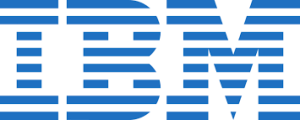
IBM is a leading provider of technology and consulting services, offering a diverse portfolio that includes predictive analytics, software development, and comprehensive storage solutions. Let’s explore the key features and benefits of IBM’s storage platforms:
Platform Features
- Integration and Flexibility: IBM’s storage solutions seamlessly integrate with other IBM services and a wide range of applications, enabling hybrid cloud and multi-cloud deployment options. This integration ensures interoperability and flexibility, allowing organizations to optimize their storage infrastructure according to their unique requirements.
- Security and Reliability: Prioritizing data security, IBM incorporates robust features such as encryption, access control, and disaster recovery solutions into its storage platforms. This emphasis on security ensures the confidentiality, integrity, and availability of stored data, instilling confidence in users regarding data protection.
- Scalability and Performance: IBM’s storage offerings are designed to adapt to the evolving needs of organizations, accommodating growing data volumes and diverse workloads. With solutions offering high performance and scalability, users can confidently scale their storage infrastructure to meet current and future demands without compromising performance.
- Management and Support: Leveraging comprehensive management tools and automation capabilities, IBM empowers users to efficiently manage their storage environments. Additionally, IBM’s global support infrastructure ensures timely assistance and expert guidance, minimizing downtime and maximizing operational efficiency.
- Innovation: IBM remains at the forefront of innovation, continuously investing in research and development to deliver cutting-edge technologies. From NVMe to software-defined storage and AI-powered data management, IBM’s storage solutions incorporate the latest advancements to address emerging challenges and drive digital transformation.
# 19 Hitachi Vantara
Hitachi Vantara is a trusted partner for enterprises seeking to harness the full potential of their data. Offering a suite of innovative solutions, Hitachi Vantara enables organizations to store, enrich, activate, and monetize their data effectively. Let’s explore the key offerings provided by Hitachi Vantara:
1. Block Storage:
- Hitachi Virtual Storage Platform (VSP): A high-performance block storage solution that offers scalability, flexibility, and multi-protocol support for various workloads.
- Hitachi Flash Storage Platform (FSP): Delivers exceptional performance and low latency for demanding applications such as databases and virtual machines.
- Hitachi Unified Storage VM (USV): Consolidates block and file storage on a single platform, simplifying management and reducing costs.
2. Object Storage:
- Hitachi NAS Platform (HNAS): Scalable and cost-effective object storage solution for archiving, backup, and data lakes.
- Hitachi S15 Object Storage System: High-performance object storage designed for media libraries, scientific data, and big data analytics.
3. Software-Defined Storage (SDS):
- Hitachi Virtual Flash Fabric (VVF): Software-defined block storage virtualization platform offering flexibility and centralized management.
- Hitachi Cloud Flex: Flexible and scalable SDS solution for on-premises, cloud, and hybrid deployments.
4. Data Management and Protection:
- Hitachi DataOps Platform: Automates data management tasks, simplifies data movement, and optimizes storage utilization.
- Hitachi Vantara Data Management Suite: Offers comprehensive data protection, backup, and disaster recovery solutions.
Additional Features:
- AI-powered analytics: Leveraging Hitachi’s AI technology for intelligent data tiering, workload optimization, and anomaly detection.
- Multi-cloud integration: Seamlessly integrates with leading public clouds for hybrid and multi-cloud deployments.
- Security and compliance: Robust security features and compliance certifications ensure data protection.
- Global support: Hitachi Vantara offers extensive support services to ensure optimal performance and uptime.
#20 HPE
HPE SimpliVity, an integral part of Hewlett Packard Enterprise (HPE), offers cutting-edge hyperconverged storage solutions that revolutionize IT infrastructure. By converging the entire IT stack into each node, HPE SimpliVity simplifies operations, enhances performance, and ensures scalability for virtualized workloads. Let’s delve into the key features and latest updates of HPE SimpliVity:
Key Features of HPE Data Storage
- Scalability: HPE storage solutions are designed to scale seamlessly to meet the evolving needs of your business, ensuring you can expand your storage infrastructure effortlessly.
- Performance: Experience high performance with HPE storage solutions, enabling you to support even the most demanding applications with ease.
- Security: Protect your data with confidence using HPE storage solutions, which come equipped with robust security features to safeguard your critical information.
- Reliability: Rely on HPE storage solutions for their reliability and availability, ensuring your data is always accessible when you need it.
- Ease of Use: Enjoy a user-friendly experience with HPE storage solutions, which are designed to be intuitive and easy to manage, reducing complexity and streamlining operations.
- Flexibility: Choose from a variety of storage options tailored to your specific requirements, allowing you to customize your storage infrastructure to suit your unique needs.
- Integration: Seamlessly integrate HPE storage solutions with other HPE products and services, enabling a cohesive and unified IT environment.
Latest Updates
- HPE Alletra: HPE’s flagship storage platform, offering a unified storage experience for block, file, and object data, empowering organizations with versatile storage capabilities.
- HPE GreenLake for Block Storage: A pay-as-you-go block storage solution providing flexibility and scalability, allowing businesses to align storage resources with their changing needs.
- HPE GreenLake for File Storage: A pay-as-you-go file storage solution delivering high performance and scalability, enabling organizations to efficiently manage their file storage requirements.
- HPE StoreOnce: A comprehensive data protection solution offering backup, archiving, and disaster recovery capabilities, ensuring the safety and integrity of your data assets.
Final Thoughts
In today’s data-driven world, enterprise data storage is a strategic necessity. The explosive growth of data volumes from applications, sensors, and user activity overwhelms traditional storage solutions, leading to scalability issues and management challenges. Enterprise storage addresses this by offering scalability and flexibility to efficiently handle exponential data growth.
Security and compliance are critical concerns in the face of rising data breaches and cyberattacks. Enterprise storage solutions prioritize data security with advanced encryption, access control, and disaster recovery features, ensuring compliance with regulations like GDPR and HIPAA. Modern storage solutions also enable seamless collaboration and file sharing across teams and devices, boosting productivity and accelerating decision-making. Integration with data analytics tools allows businesses to unlock valuable insights from their data, empowering data-driven decision-making and enhancing customer experiences.
[To share your insights with us as part of editorial or sponsored content, please write to sghosh@martechseries.com]




